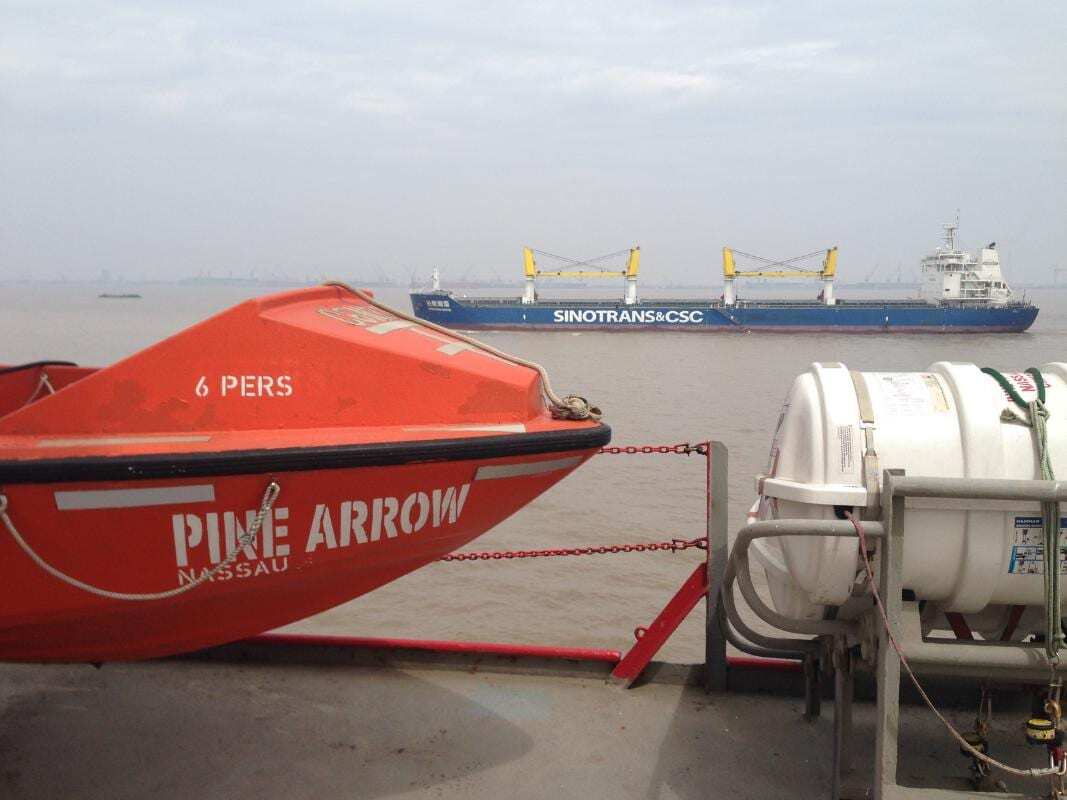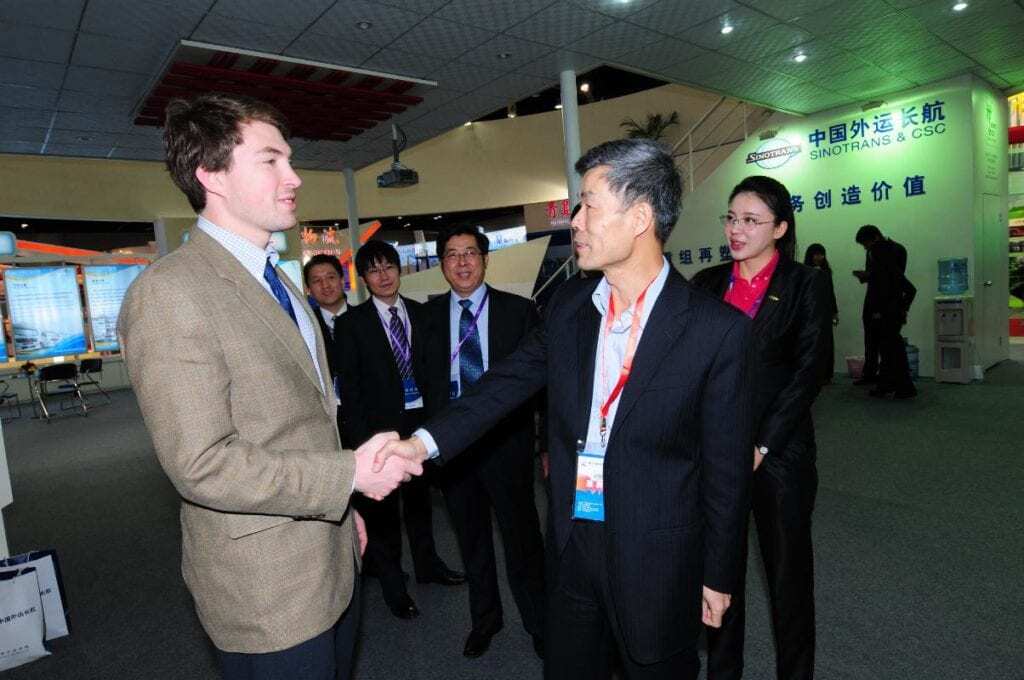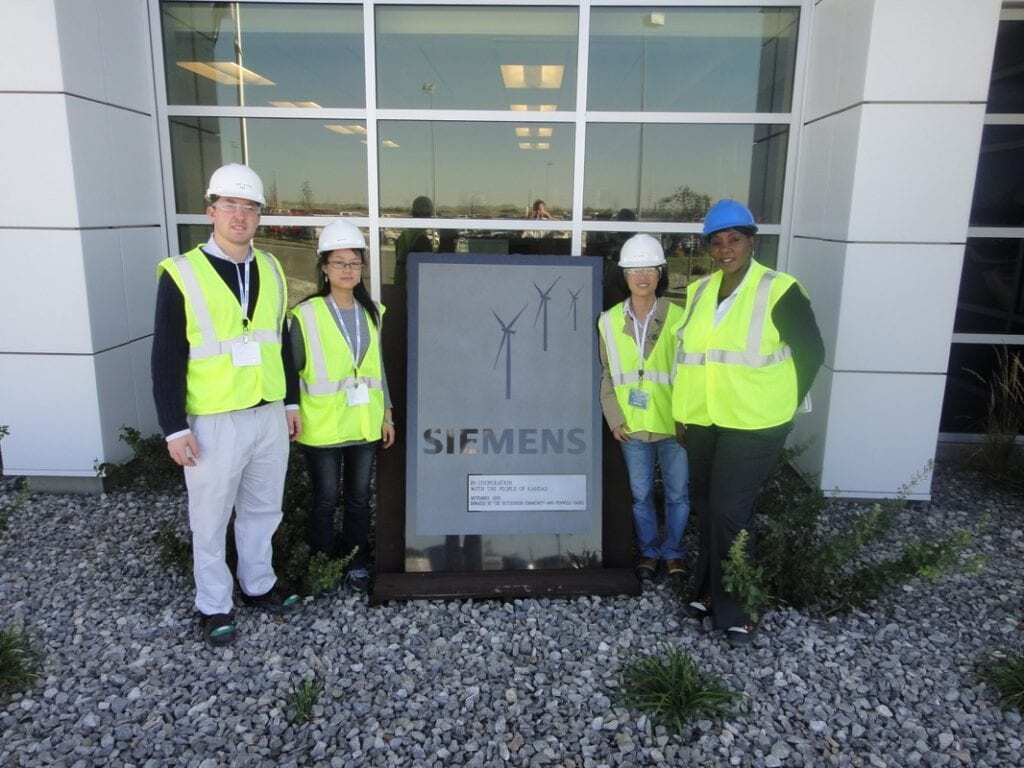Four years working inside China’s largest state-owned integrated logistics company
Interview part 2 of 2
Talk to us about the level of competition in China. Did Sinotrans’ SOE status make it easier to compete?
State-owned enterprises certainly have advantages over their private enterprise and MNC counterparts. In some industries, most notably Energy and Telecommunications, these advantages amount to a monopoly. In other industries, such as logistics, the government has deliberately loosened the reins in order to create a more competitive environment. I remember a vice president of Sinotrans explaining to a group of visiting UK business school students that he faces more severe competitive pressure than any of his SOE counterparts.
Tell us about a few of the projects that you worked on during your time at Sinotrans.
I was fortunate to work on an array of projects during my time at Sinotrans. I will go ahead and highlight a few:
Dubai – During my second year, Sinotrans’ management decided to open a joint-venture in Dubai’s Jebel Ali Free Zone. A colleague of mine was tapped to lead this new operation and asked me to assist. I worked with him on laying the groundwork to operationalize the joint-venture. As is common in China, we worked on an extremely tight timeline. Our work culminated in an on-site visit by Sinotrans’ chairman.
Guatemala – One of my division’s largest projects was a coal-fired power plant outside of Guatemala City. Prior to the project’s launch, along with the project manager, I visited Guatemala to conduct due diligence on local logistics providers. My Chinese colleague was insistent on partnering with a Guatemalan provider as he believed they were best positioned to navigate the Country’s complex port operations. I pushed back, especially after meeting the head of a localized German outfit. The German company had a great track record of handling heavy lift projects and exuded trust and transparency. As expected, it was difficult to persuade my counterpart to go with the more expensive German option, however, overtime, I was able to persuade him. I presented him with data that proved that the more expensive option was cheaper in the long run. Trust, transparency and past experience is always more valuable than a cheap quote!
Wichita, Kansas – Another large project in my division was the transport of wind canopies for Siemens’ wind turbine factory in Wichita, Kansas. In just a few weeks we encountered the following issue: canopies were arriving in Wichita covered in fly rust (a violation of Siemens quality standards). The head of our division immediately sent me and the project manager to Kansas to figure it out. Solving this problem was fascinating as it involved dealing with a Chinese manufacturer, Texan logistics company, German conglomerate and a Korean shipping company.
I know that you speak Chinese well. Do you think that was a big advantage in your everyday life? How about in your business life? Were your colleagues more apprehensive because they knew you understood all that was said?
Mandarin is the gift that the keeps on giving! I can’t stress to you enough how much value (and fun) I receive from speaking Mandarin. In my division there were a few colleagues who had hopes that I would serve as their English tutor, however, after a few months, their dreams were dashed as I was militant about only speaking Mandarin in the office. The head of my division would often yell across the office “Xiao Guo, Ni Guolaiba!” which translates to “Little Guo (my Chinese surname), come here!” I will always respect him and all the other colleagues who treated me as an equal. Not once during my time at Sinotrans did the head of my division single me out for being an American or assume I couldn’t handle a task because of my foreigner status.
Outside of the office, especially traveling throughout Asia, Mandarin proved hugely helpful.
Tokyo – While on a trip to Japan, I found myself at an uber local yakitori restaurant. My friend and I spotted a group of professionals sporting Panasonic corporate badges. Being the outgoing person I am, I tried to initiate a conversation. The only issue – they did not speak a lick of English, and we did not speak any Japanese. Just when it looked like this exchange would never transpire, I heard our waitress yell “these Americans don’t speak Japanese.” What is important is that she said those words in Chinese! It turned out that our waitress was from Fujian Province and spoke fluent Chinese and Japanese. Over the next hour we employed our waitress as our translator. The result – we now have a few friends at Panasonic!
What was your relationship with other foreigners working in China?
Beijing attracts an incredibly diverse set of international students and professionals. Amongst my close friend group, I knew people who worked at the American Chamber of Commerce, NBA, British Embassy, Tsinghua University, APCO Worldwide, Baidu and JP Morgan. In addition, I had friends who were bilingual standup comics, assistants to Chinese movie stars and purveyors of French wines. I will always be grateful for all the great friendships I built during my time in Beijing.
What are you most proud of from your time at Sinotrans?
One my strategic goals was to expand the great opportunity I had received to other international young professionals. Therefore, in my second year at Sinotrans, I approached the head of my division and pitched him on the idea of establishing an international trainee program. He said yes with the caveat that I had to run the entire operation. In other words, develop the program, recruit candidates and manage the participants.
Later on that year we established the International Trainee Program (ITP). Over a three-year period, ITP hosted eleven university students from nine universities and four countries: Germany, Portugal, United Kingdom and United States. The Program was highlighted in Sinotrans Group’s (the parent company) annual CSR Report. In addition, a vice-general manager commented the following when describing ITP: “The Program’s positive impact highlights the benefits of diverse teams, and serves as a model for other Sinotrans divisions. It is programs like ITP that mark Sinotrans’ transformation from a large Chinese enterprise to a leading international corporation.”
When and why did you leave China?
After about three years, I decided that I had realized most of the goals I set out to achieve. In addition, I started to feel that I was growing apart from friends and family back home. I knew the longer I spent in China the harder it would be to return to my own country. I decided the best way to return was through attending a top-tier MBA program. After being accepted to Yale, I notified Sinotrans and my clients that I would be leaving China.
After notifying my professional network of my May departure, I was contacted by Charlie Du Cane, the head of Gearbulk China, with an opportunity to work for him. I accepted the offer as I had a few months between wrapping up at Sinotrans and starting at Yale. Working for Charlie and Gearbulk proved to be a great opportunity. It provided me with a look at the industry from the shipowner’s perspective. As part of my consulting engagement, I sailed for two weeks on board of Gearbulk’s Pine Arrow (630 ft fleximax vessel). We sailed from the Shanghai Port through the East China Sea to the Bay of Bohai. Talk about a great way to culminate four years in China!



About Tyler Godoff
Tyler Godoff is passionate about creating thriving client relationships, connecting global business leaders and shaping the US-China relationship. Tyler is a MBA graduate of the Yale School of Management and a magna cum laude graduate of Vanderbilt University.
Tyler has six years of account management and business development experience. Four of those years were spent in Beijing working for Sinotrans – China’s leading shipping and logistics companies. At Sinotrans Tyler led pre-sales and post-sales support efforts for a portfolio of multinational clients. Since returning to the States, Tyler has held roles at two early stage tech companies in Boston and San Francisco.
At Yale, Tyler held several positions including graduate representative to the Schwarzman Center Advisory Committee; board fellow to the Yale-China Association; committee member to the Mory’s Association Membership Committee; and student interviewer to Yale SOM’s Admissions Committee.
Tyler previously served as chairman of the Board of Trustees of Global China Connection (GCC). GCC is a student-run non-profit connecting the future leaders of China and the international community. In 2010, Tyler was one of 50 young entrepreneurs selected by the Alibaba Group to attend its Annual Meeting in Hangzhou, China.
Tyler can be reached at the following email address or on LinkedIn
Email: tyler.godoff@aya.yale.edu
LinkedIn: https://www.linkedin.com/in/tyler-godoff

